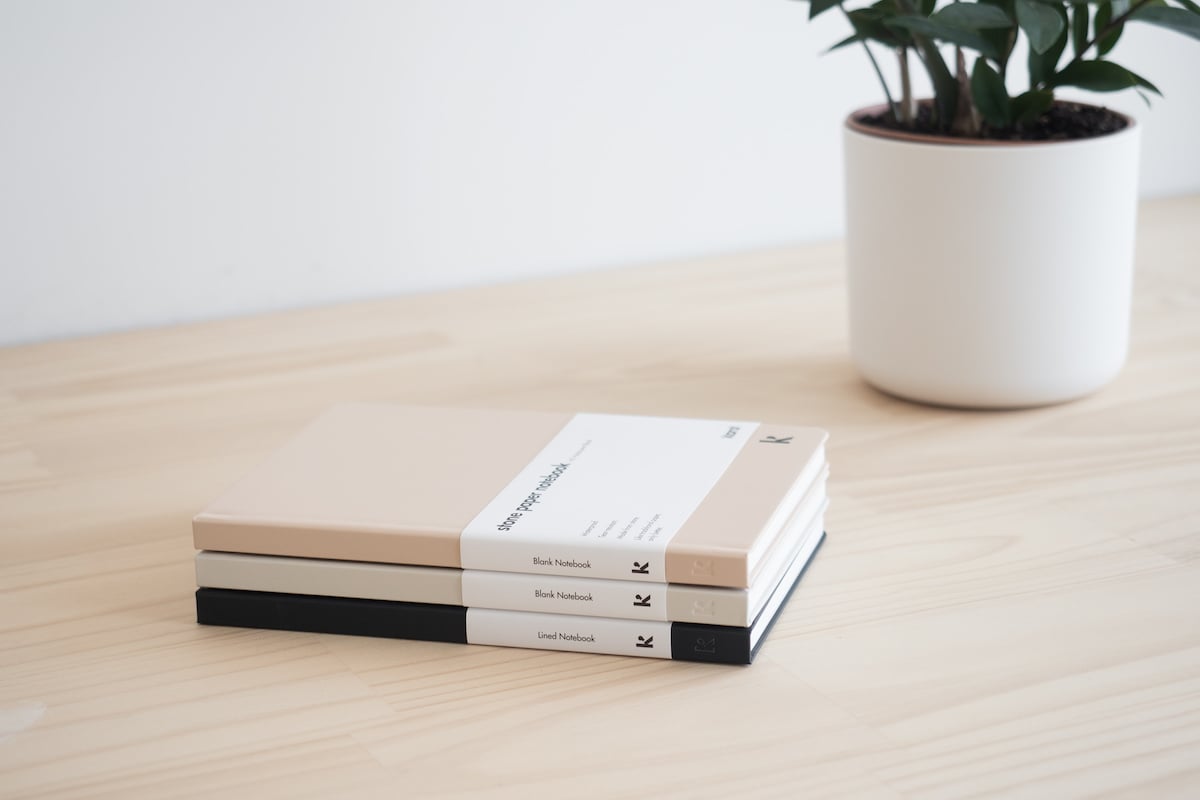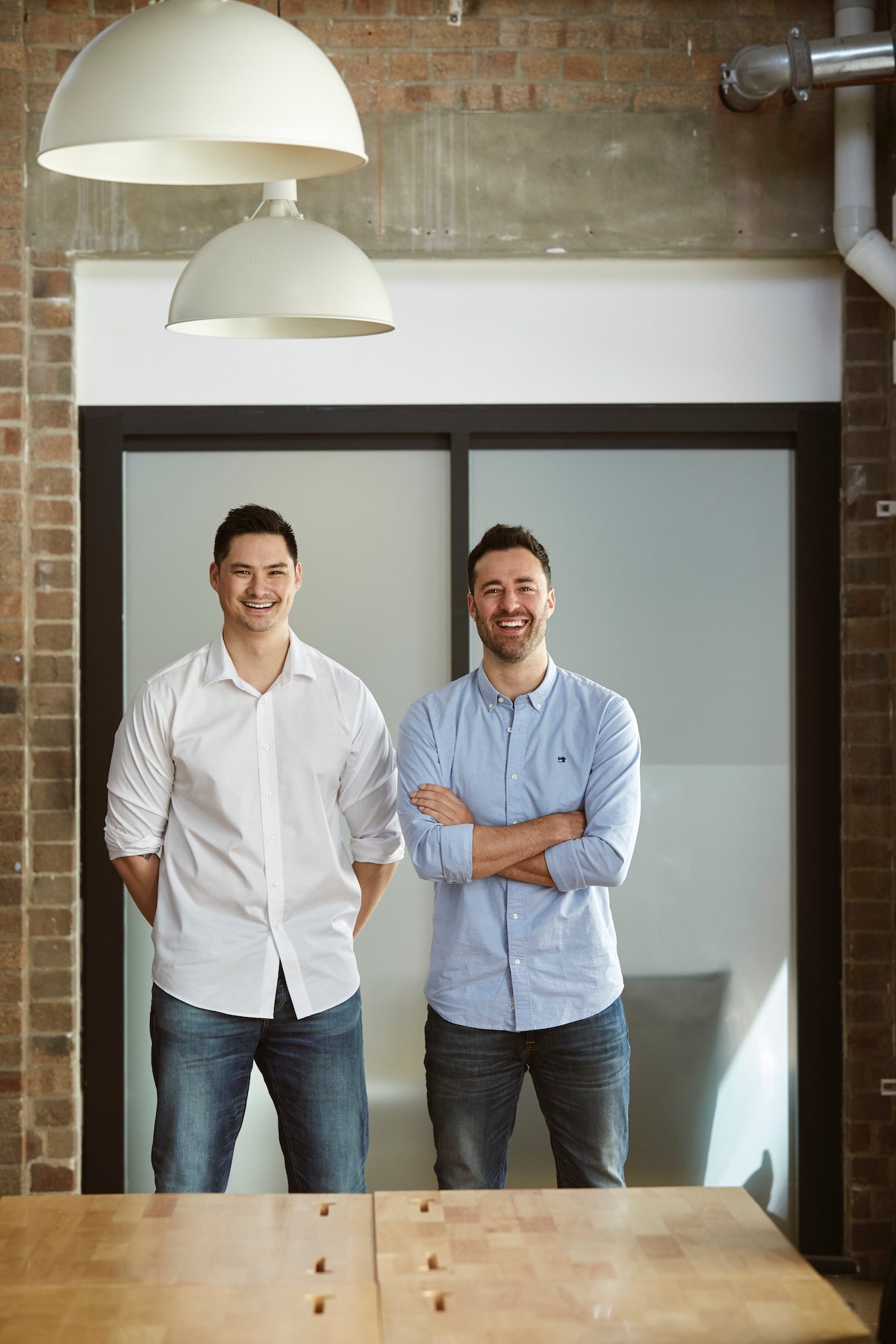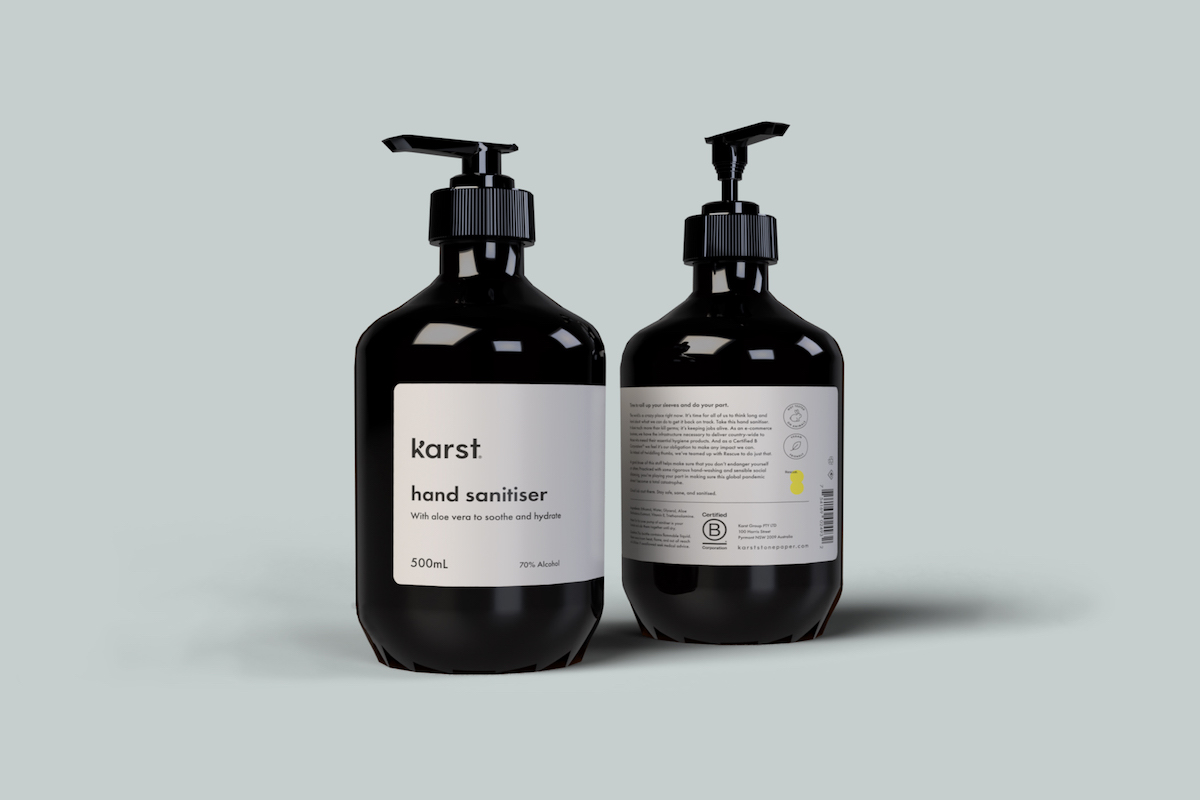When I first spoke to Co-founder and Co-CEO of Karst Stone Paper Jon Tse in January, neither of us had any idea what the months ahead would look like for businesses around the globe.
The certified B-Corp brand transforms recycled rubble left over from construction and mining sites to produce exquisite stone paper stationery products.
The process goes like this: construction sites and mining quarries collect leftover calcium carbonate. This is then crushed down into a fine powder and mixed with high-density polyethylene (HDPE), which acts as a glue to bind the calcium carbonate particles together. It’s then made into pellets that are put through large machines to roll and stretch them to become something nearly identical to pulp paper.

“The process itself requires only a third of the carbon emissions compared to traditional pulp paper,” Jon explains.
“When we saw this was a clean and sustainable alternative, but no-one was using it for everyday consumer purposes, we thought it was a unique opportunity to create a brand and bring this material into the consumer world.”
The result is Karst’s core brand of creating beautiful products for the home and office using sustainable, alternative materials that help people to be more creative and productive.
A turn of events
In the wake of the COVID-19 pandemic, the brand has embarked on a new initiative that is a far cry from its usual stationery products. It has partnered with a company called Rescue Brand to get hand sanitiser into the hands of as many Australians as possible.

Nick Benson, Jon’s friend and Co-founder of ExD – a company that helps create beauty, health and wellness products for global brands – set up Rescue Brand when friends from highly skilled industries were losing jobs because of the crisis. In the space of a week, he employed 14 people to assist in the execution of producing critical products like hand sanitiser and masks.
“Knowing we had contacts within the government and he had the capabilities to fulfil the need for essential products quickly, Nick reached out to brainstorm ideas,” Jon explains.
“A big part of the ethos of our company is using business as a force for good. Although hand sanitiser is completely out of the realm of our brand, we felt compelled to put our hands up and quickly mobilise our team and resources to launch affordable hand sanitiser directly to the doors of Australians nationwide.”
With the infrastructure already in place, the pair could go from idea to launch within a week. Twenty-two thousand units are now available for pre-order on the Karst website, with a limit of 6 bottles per customer.
Every purchase contributes to the operation of Rescue; the money Karst has used to purchase these products has funded their new employees.
Karst has also launched a form on its website where schools and day care centres can register their interest in receiving free hand sanitiser.
“Although many businesses aren’t open, there are still schools and day care centres that are,” Jon says. “For us, any little thing we can do to help flatten the curve, we will. This includes keeping kids, parents and teachers safe, sane and sanitised.”
“For us, any little thing we can do to help flatten the curve, we will.”
When asked if this will change the trajectory of the business for the long haul, Jon says, “It is a unique time to be building a brand amid so much uncertainty with the current global health and economic environment.
“I’d like to be able to tell my grandkids one day that when we had the opportunity to help more Australians access an essential and affordable product during the COVID-19 pandemic, we rallied, put our hands up and took action. In terms of changing our business trajectory, I think this stays constant: if we aim for the stars and we miss, we’ll land in the clouds.”
To purchase a bottle or six of Karst’s hand sanitiser, click here.







